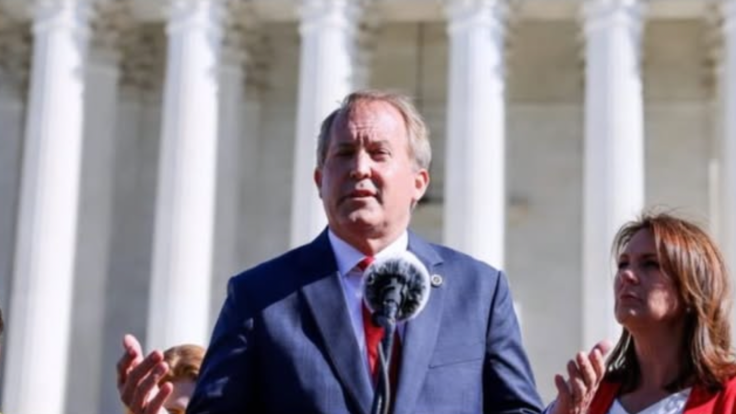Texas Sues Johnson & Johnson for 'Hiding' Tylenol Autism Risks — Billions at Stake in Landmark Case
Paxton's lawsuit accuses Tylenol makers of hiding autism risks, highlighting political use of legal action over scientific debates.

Texas Attorney General Ken Paxton has launched a sweeping legal action against pharmaceutical giants Johnson & Johnson and its spin-off Kenvue, accusing them of concealing evidence that prenatal use of Tylenol (acetaminophen) may increase the risk of autism and ADHD in children. Filed on 28 October in Texas state court, the lawsuit seeks damages estimated in the 'tens of billions' and claims the companies violated consumer protection laws by marketing the drug as safe for pregnant women without adequate warnings.
A Landmark Legal Move
This case marks the first successful state-level effort to pursue claims that previously stumbled in federal courts. It comes just weeks after former President Donald Trump publicly suggested a link between Tylenol use during pregnancy and autism—an assertion lacking definitive scientific backing.
In his statement announcing the lawsuit, Paxton invoked the 'Make America Healthy Again' agenda championed by Health Secretary Robert F. Kennedy Jr., framing the case as part of a broader crusade against Big Pharma. Kenvue responded swiftly, dismissing the allegations as 'baseless' and reaffirming the long-standing safety record of acetaminophen for pregnant women.
Key Allegations and Scientific Evidence
The Texas complaint alleges that, for decades, the defendants suppressed or ignored scientific signals linking prenatal acetaminophen exposure to neurodevelopmental disorders. It cites over 26 epidemiological studies, some demonstrating dose-response relationships, to argue that the evidence warrants both warning labels and liability.
The suit also accuses Johnson & Johnson of fraudulently transferring liabilities to Kenvue during its spin-off to shield itself from future claims. Yet, the scientific community remains divided. Many epidemiological studies show mixed or modest associations, often hampered by confounding factors and reliance on maternal recall data.
In 2022, dozens of related lawsuits were consolidated into a multi-district litigation (MDL), overseen by Judge Denise Cote, which dismissed claims late last year, criticising expert testimony as methodologically flawed.
Legal Strategy and Political Context
To bolster its case, the Texas petition demands access to internal company memos, scientific analyses, and historical labelling decisions. It also seeks disgorgement, punitive damages, and injunctive relief.
Paxton's move follows closely on the heels of Trump's public statements earlier this year, where he warned pregnant women to avoid Tylenol, citing the alleged autism link and comparing populations like the Amish—who reportedly have lower autism rates due to limited medication use. Medical experts quickly pushed back, emphasising that correlation does not equal causation and highlighting the dangers of untreated fever during pregnancy.
The US Food and Drug Administration responded by announcing it would 'reassess' Tylenol labelling, although it stressed no causal relationship has been established.
A Broader Political and Cultural Battle
The Texas lawsuit exemplifies a broader trend under the Trump administration of using litigation as a political tool. Legal offensives increasingly target industries or ideas that challenge prevailing narratives.
The appointment of Robert F. Kennedy Jr. as Secretary of Health and Human Services (HHS) further underscores this shift. Kennedy, known for controversial views on vaccines and alternative health, has no formal medical training. His 'Make America Healthy Again' (MAHA) initiative often frames health policy through suspicion of pharmaceutical and government institutions.
Together with Trump's rhetoric, Kennedy and Trump have repeated claims linking Tylenol and folate deficiency to autism—a hypothesis that remains scientifically unproven.
Erosion of Public Trust and Health Risks
The lawsuit and its political context arrive amid growing public mistrust in health messaging. A recent Kaiser Family Foundation (KFF) poll found confidence in health information has sharply declined following the administration's warnings about Tylenol, with many unsure whom to believe.
Official warnings about widely used medications risk sowing fear and confusion among pregnant women, who often face difficult choices about medication use. Medical groups, including the American College of Obstetricians and Gynaecologists, have criticised the government's messaging as potentially dangerous, warning that untreated fever and inflammation can harm fetal development.
Experts warn that simplifying complex epidemiological data into cause-and-effect narratives can backfire. Women avoiding acetaminophen out of fear may resort to less safe alternatives.
Implications for the Future
The stakes in Texas are significant. If Paxton succeeds in securing a judgment or forcing label changes, it could open the floodgates for similar state-led lawsuits against pharmaceutical companies, potentially reshaping liability norms and risk assessments across the industry.
As this high-profile legal battle unfolds, it underscores the growing intersection of health science, politics, and legal strategies—raising vital questions about the future of medical regulation, corporate accountability, and public trust.
© Copyright IBTimes 2025. All rights reserved.





















